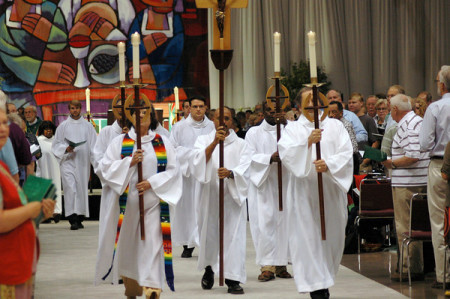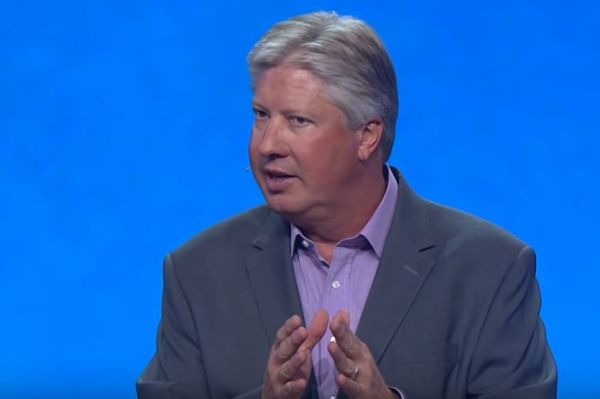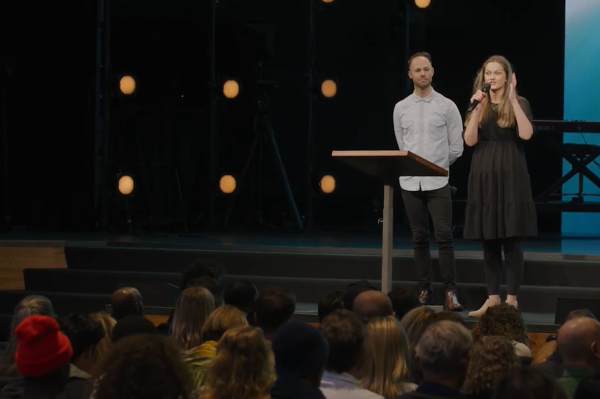ELCA vote opens door to nixing conscience protections for same-sex marriage opponents

The Evangelical Lutheran Church in America has approved a proposal to possibly revise a social statement that respects the conscience of members who oppose same-sex marriage.
At the ELCA Churchwide Assembly in Columbus, Ohio, delegates voted in favor of potentially revising a 2009 social statement passed on the issue of "bound conscience."
Motion K, also known as "Revision to Human Sexuality: Gift and Trust Social Statement," passed overwhelmingly last Thursday in a vote of 708 to 93. The ELCA will create a task force to review the issue and make recommendations to the 2025 Churchwide Assembly.
Most attendees who spoke on the motion supported the measure. Considerable applause broke out after Presiding Bishop Elizabeth Eaton confirmed its passage.
Michael Schulte of the Southeastern Synod spoke in favor of the motion, saying he was raised in a church that considered homosexuality a sin.
"I know firsthand how harmful it is to grow up in churches which tell you that your identity and your sexuality damn you to Hell," he said. "I know firsthand how hard it is to grow up in schools that have teachers and church leaders tell you that you are 'less than' because of your sexuality."
Schulte added that while the motion "doesn't even say that we have to change our church's understanding," he felt "it is time for us to reconsider" the social statement.
"One's geography, one's local church, and one's local pastor should not determine whether someone enters into a church and is told they are a beloved child of God or told that they are damned to Hell," he added.
"I believe it is time for our denomination to truly welcome and affirm queer people, and that starts by revising the four positions of bound conscience."
Pastor Joseph Klinger of the Southeastern Pennsylvania Synod also voiced support for the motion, claiming that "as long as bound conscience continues to be on the books, we are not fully welcoming."
Pastor Beth Schlegel of the Lower Susquehanna Synod spoke against the motion, noting that the "bound conscience" measures were meant to recognize diverse views on homosexuality, not just those opposed to same-sex marriage.
"To disregard the variety of understandings of the Holy Scriptures on this would be a disservice to our church," she said. "I hope there is a way that we can find a path to be welcoming of all people, but also respectful of various viewpoints regarding the authority of Scripture."
Schlegel stressed that "not everyone is hostile and not everyone agrees."
"I hope we can find a way forward," she concluded.
Another delegate posed the question of whether possibly removing the "bound conscience" provisions "will change the hearts and minds of those who are not in agreement."
Adopted at the ELCA Churchwide Assembly in 2009, the statement "Human Sexuality: Gift and Trust" acknowledged that a "consensus does not exist concerning how to regard same-gender committed relationships" within the denomination.
The statement recognized four "conscience-bound" positions on homosexuality, including those who believe that "same-gender sexual behavior is sinful, contrary to biblical teaching and their understanding of natural law."
"They therefore conclude that the neighbor and the community are best served by calling people in same-gender sexual relationships to repentance for that behavior and to a celibate lifestyle," the statement explained.
The other three "conscience-bound" positions were those in the ELCA who oppose homosexuality but "acknowledge that such relationships may be lived out with mutuality and care," those who support same-sex relationships but "do not equate these relationships with marriage," and those who want "same-gender relationships" to be "held to the same rigorous standards, sexual ethics, and status as heterosexual marriage."
"Regarding our life together as we live with disagreement, the people in this church will continue to accompany one another in study, prayer, discernment, pastoral care, and mutual respect," the statement added.
The four bound conscience agreements came the same year the ELCA voted to allow gay ordination, which prompted hundreds of congregations to leave the denomination.





















